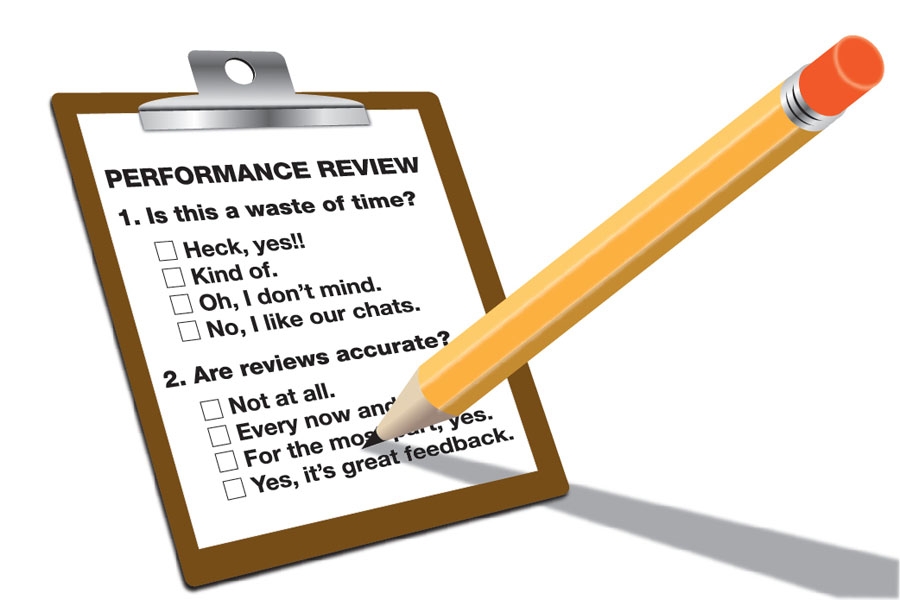More organizations are doing away with an awkward corporate chore.
Every year employees and managers partake in an anxiety-provoking corporate ritual dubbed the annual performance review. Lately, the review process itself has gone on trial, and it’s been asked to leave.
“Any kind of performance review, it just feels gross,” says Abby Engers, a recruiting consultant at Portland-based staffing agency Boly:Welch. “It doesn’t feel like you’re learning or growing.”
Boly:Welch just wrapped up its second quarter sans review. Instead, the human resources consultants took the advice of another consultant. They opted for quarterly “employee-led” chats, Engers says. These meetings do not affect an employee’s compensation.
In the casual sessions, the employees are in charge. They discuss their personal goals and achievements with their managers. They can plan for additional classes or training to meet their career aspirations. There are a few other ground rules to facilitate engagement, including no cell phones, and no flaking out less than a week in advance.
Boly:Welch is not alone in its experiment. More companies today are ditching the annual performance review after evidence that it might be hurting rather than helping.
The number of employers doing away with performance reviews grew to 12% in 2014 from 4% in 2012, according to a Corporate Executive Board survey of Fortune 1,000 companies reported in Slate Magazine.
“Any kind of performance review, it just feels gross,” Engers says. “It doesn’t feel like you’re learning or growing.”
Audra Hedberg, a consultant at Portland-based Trupp HR, says employees and their bosses often develop close working relationships, and the annual performance review can break that trust. Negative feedback might come off as confrontational.
“Annual performance reviews are just really uncomfortable for managers and employees,” says Hedberg says. “A lot of the time managers aren’t good at it. It’s a very fine art.”
The type of company, consultants say, influences the way it should structure its review process. The trend toward casual meetings is especially prevalent in startups, with their nimble business models and informal culture. Tech companies also value more constant feedback.
At Boly:Welch, Engers says, the annual review didn’t vibe with the company culture. She describes the agency as a “flat hierarchy,” with four or five managers, and a cadre of self-directed employees. Many are salespeople who work on commission.
The new process fits better with the company’s “choose your own adventure” path to advancement, Engers says. “We’re not very formal about it, because we’re not a very formal company.”
Demographics also play a role in the restructuring of the performance review. Millennials and Gen Y in particular seek constant feedback, and are anxious to move up the ranks. But older generations are also calling for an update to the annual format.
“Anybody in the working world these days doesn’t want to be caught without the information they need,” Christensen says.
“Anybody in the working world these days doesn’t want to be caught without the information they need,” says Lyndsey Christensen, director of human resources services at consulting firm Mammoth.
Some consultants caution against trashing the annual review entirely. Weekly one-on-one meetings depend on a highly-engaged workforce and management team. Both sides have to want to be there, every week.
“if you hate seeing your employees every year to give feedback,” Christensen says. “This is not going to help.”
A better approach, Hedberg says, might be an annual feedback session that summarizes a year of informal one-on-one meetings. Christensen says some of her larger clients have opted for similar strategies.
“I personally think it’ll settle in the in-between stage,” she says, “with the constant element, but also more formal check-ins.”
To subscribe to Oregon Business, click here.






